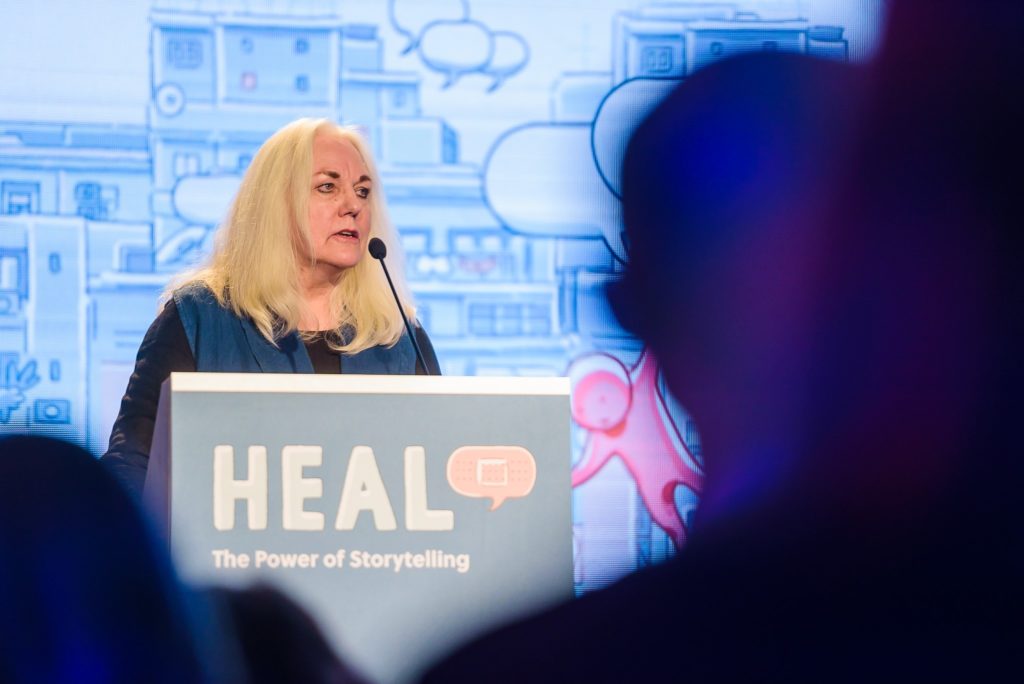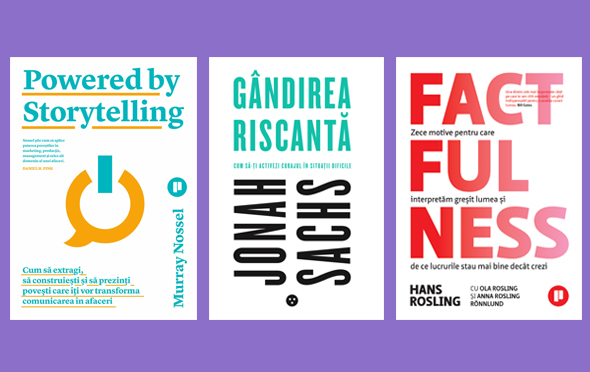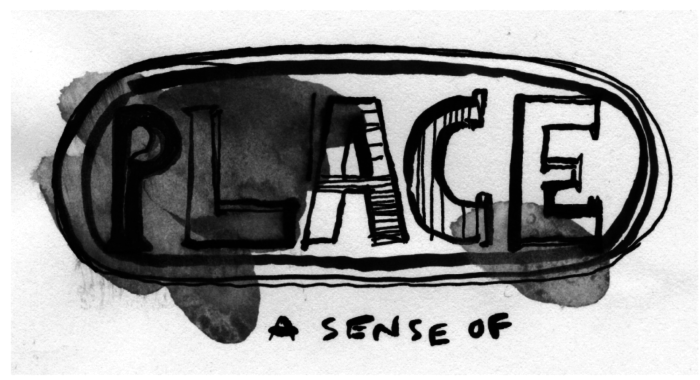
October is usually the time for The Power of Storytelling conference in Bucharest, where we gather an international lineup of stellar storytellers to speak about their craft. (The picture above is from our 2019 edition.)
We postponed this year’s edition for 2021 as we cannot deliver the full experience that our participants and speakers are waiting for, but we couldn’t let this month pass without exploring the power of stories in uncertain times.
On October 14, we hosted a special online event with Pulitzer prize winner Jacqui Banaszynski, who’s been our mentor ever since the first edition. The conversation was moderated by Ioana Burtea, DoR collaborator, and longtime member of The Power of Storytelling communications team.
Here are the main takeaways:
On narrative journalism:
What is at the center of narrative journalism, no matter the length or the subject, is that it’s a journey. It can be geographic, through distance, or it can be a journey through time, through money, through spirituality – how some people get from one belief to another. It can be a journey of intellect, of learning something, of discovery. I always look for something that actually takes me somewhere, that allows me to follow people on that journey and relate to them somehow.
On the impact stories can have:
I always say that in this kind of work, there are no metrics that can measure the impact on the human heart. But I read a lot of history and I realize how important it is to recognize the things that have gone before and how people have gone through them. I am fascinated with World War 2 and how people in Europe especially survived years and years of bombing. If we didn’t have those stories, if the press hadn’t written those stories or some historian hadn’t archived them, we wouldn’t have any of that knowledge, so we wouldn’t know our own journey. And if narrative is a journey, we are all part of a journey of humanity. I just have to trust that the stories that I am part of get put out there and one day will be part of a bigger narrative that will do some good.
It’s the same thing I learned about teaching: I can’t teach anyone anything. All I can do is put tools and knowledge in front of someone. It’s theirs then to decide when and if they’re ready to pick that up and make use of it, and even to decide how to make use of it. I have to accept the same thing about storytelling: I put the story out there, as a writer or editor or teacher, and then what people do with it, I have to trust that that’s their choice and their decision and I can’t force it.
On how stories can bring about healing:
It’s interesting to see how much is changing. People are paying attention, they are paying more attention to the press and to legitimate reports about what they should be doing about Covid-19 than they are to whatever’s coming from the White House. They are paying serious attention to the Black Lives Matter movement and the whole issue of underlying systemic racial injustice in this country and are starting to shift their attitudes. Gay marriage is a really good example, though it is at risk again. That, to me, comes from people telling stories.
There are limits to the healing power of stories: of access, resources, time, but there are also the other limits of human screw-ups, human weakness. We are human beings and we make mistakes.
One of the limits that we have to accept and deal with is that people read the way they read. We know what we mean when we write but that doesn’t mean that the reader takes that meaning away. We have to constantly be thinking about: “Am I being clear and precise enough for a reader to get most of what I’m saying? Accurately and honestly?” That’s part of the limits of the work we do. (Journalism) is a craft, but it’s not science. There are scientific methods we can apply, but in the long run there are human beings doing this. But we have to give our best efforts, whether or not we think it’s making a difference or not at the moment.
About mission in times like these:
You have to think about it in small ways. You’re one part of a much bigger mosaic of people doing this work. And if you spend time thinking about everything – “Oh my God , the public isn’t listening, the press is under siege, we have to get people to understand, we have to break through” – you’re not going to get anywhere.
A student asked me years ago how you win a Pulitzer Prize. I rolled my eyes and I said “I can answer the question for you but you’re not going to like the answer”. How you win a Pulitzer prize is one paragraph and one story at a time.
The story in front of you is the story that matters, not the story you think you’re gonna do in five years that wins the Pulitzer prize. It’s narrowing your focus and keeping your eyes on “Here’s what I can do right now” and if I give my fullest and best daily attention to that then it fits into “I’m just one piece in this bigger puzzle”. And it’s not an easy thing to do because we can get distracted by the existential everything out there and then you have to come back and say “No, I’m writing one story today and it’s about this one thing and I have to do it as well as I can and then move on to the next and the next”. That’s all you can do in life too.
Advice to young journalists:
If they don’t have fire and passion somewhere, a little burning ember for this kind of work, for what it means and what it can do, they shouldn’t do this kind of work. If they have that passion though, I’d tell them there are more options for doing journalism than there ever have been. They’re not the same options and it’s not a clear path, and I worry about what we call “news deserts” in the United States – whole places where local journalism just went away – but there are other ways to get jobs and do journalism that didn’t exist 10 years ago, much less 20.
I’d tell them all I’ve told you at the conference and I believe: that the work in itself is the reward. Yes, it’s hard, yes, deadline is tough, tension is tough. You’re not gonna be beloved when you walk down the streets necessarily, nor when you’re invited to your boyfriend’s or girlfriend’s family house for the first dinner and they’re looking at you like you’re the enemy, but going and doing the work and talking to people and listening to people and learning stuff has to be its own reward. As long as you can pay the bills somehow, then it has to be its own reward.
Let’s say you’re an ER doctor and somebody comes in and they’re in a very very bad shape. And you don’t think you can save them. But you give everything to try and you don’t give up on them. If they don’t make it you have to accept that. What is hard to accept is that you didn’t make the effort. We’re not ER docs. Mostly what we do does not end up in life or death but it’s the same thing as “I’ve got to give it my best effort whether or not I think it makes a difference in the moment”. It’s that sort of acute attention to the moment that I think is required and also a gift in this kind of work.
On the 6 C’s of good journalism:
Curiosity. You have to really really be curious about the world. Wonder about everything.
Critical thinking. When you wonder about the world you also have to have a part of the brain that’s going “That makes no sense” or “Wait a minute, there’s got to be another way of looking at this” or “Am I being told the truth?”.
Craft. Really knowing the craft, everything from how you put a sentence together to how you structure a story to how you interview, to how you source, ethics, and all that.
Creativity. You know the craft and then you kind of play with it. Make it sing and dance. We’ve seen a lot of that now in podcasts, videos and the creative ways in which people are telling stories is amazing.
Courage. Have courage in the field. It also means courage emotionally to sit with somebody for a really sensitive story.
Compassion. You have to care about the people you’re writing about and the people you’re writing for.
On what sharing personal stories can achieve:
I grew up in a profession where the first person was flat out, absolutely no. I wasn’t very comfortable and still am not very comfortable with it. But I learned that often a personal story is what people relate to most. They see themselves in you. They need somebody to relate to. We ask people to take risks all the time with their story, with their reality, with their pain, with their emotion. And if we’re asking people to take that risk we have to be willing to take the same risk. If I’m going to ask you to share the story and expose yourself, I’d better be willing to do the same thing under the right circumstances. Otherwise, I’m a complete hypocrite.
I think it’s really wrong for journalists to do things that really push into the world of therapy. Certainly some things that we do has its echoes, but therapy is its own profession, we are not therapists. And it would be really dangerous to pretend we are or to manipulate things to that degree.
But I think human connection, listening to and sharing stories is its own human life therapy. It is how we relate and connect, how people get closer and understand one another, how we develop empathy. The way people achieve empathy is by connecting with and hearing someone else’s story, by getting to know that other person.
On windows of opportunity and telling stories beyond the pandemic:
Part of the reason the AIDS story did so well was we did have a window of opportunity and we jumped through it and jumped through it big. If we’d done that story a year before or a year after, it wouldn’t have gotten that attention. I do think there are windows of opportunities when people are especially tuned in to certain things.
I think personal stories about struggles or achievements during the pandemic that aren’t specifically pandemic related are a bit different because life still does go on. We still deal with other things, people are still having babies and getting married, people are dying from other things than Covid. People are struggling to pay the bills and maybe that’s pandemic related, but the struggle to pay the bills and house your children is its own thing. So I don’t think everything should be connected with the pandemic, because then we would miss out on a lot of the richness of life that’s happening no matter what.
On what gives her hope in these times:
The simple fact that people do carry on. Most people find a way to carry on. When I was in Sudan covering the Ethiopian famine, people were very gracious. If the photographer and I were out reporting, they were the first to offer us food even though they had almost none. Children still laughed. I think people always until they really give up, they always find a way to find joy and keep going forward even if it’s just in little moments. I don’t think we survive very well as individuals or as a society if we can’t find patches of joy no matter what. The other thing that gives me hope frankly is just the work and the fact that the work, journalism, is still being done.
On stories that hurt:
The Hippocratic Oath says do no harm, but doctors still need to do harm. There is no Hippocratic Oath for journalists. We do harm. We have to acknowledge that and that means we have to be really conscious about that in our reporting. But as part of our reporting we have to consider and act on two things: Is the story we’re doing worth the harm it’s going to cause?
Have we done everything possible to mitigate or lessen that harm? And mostly that comes from being incredibly honest and transparent and involved with the people you’re reporting on. If there’s anything that says I’m going to cause more harm than I might do good, then you stop.
On living with insecurity:
I go up and down, like everybody. Isolation is hard. With all the noise in America, it can get really discouraging. Especially now for journalists, because it’s hard to know what good we’re doing in the world. But then I remind myself, and this is one of the gifts of journalism, that you always have a chance to recognize how good you have it versus so many other people in the world. And that’s not about a hierarchy, but about recognizing what I do have that’s good. And when you look and hear other stories you see how both courageous and kind people are, as opposed to just mean.
I have a really great core group of friends, who for some reason believe in me. If I’m having a pity party I’m much better if I do something, like clean the house or take a walk or write a letter, something that gets me out of my own head and my own space. I could sit and look at trees forever and then just decide the world’s OK. During the pandemic, there have been a lot of studies about how important it is for people to get out in nature, even if it’s just sitting in a park for half an hour. I read fiction that either helps me see the possibility of writing and of creativity, or else is just completely distracting.
On how she choses her stories:
I tend to be drawn by the journey, the way people get through the journey. I tend to like stories that are about struggle, that aren’t too glib or happy. I started by doing pretty traditional beats and I was really interested in covering the White House or the Supreme Court, and I think that would have been fine. But once that I was out in the field and saw the possibility of writing about real people and how they live day to day, that was much more interesting to me. I’m far more interested in how ordinary people live.
On the difficulty for journalists to do their job while working remotely:
It is concerning. For narrative journalism, so much of what we teach is to be in the field, on the scene, in the moment with the person, to do observation work. I look at two things:
Photographers have never left the field. When I was a reporter I learned more as a reporter from being in the field with photographers than I ever did from other reporters and editors. They never left the field. I would take cues from them. If I were to go into the field right now I would reach out to some of the photographers and ask what do I need to know, what do I need to do?
You can do a lot of this work through reconstruction. If you’re really really smart about using the phone and using texts and knowing who to interview and interviewing in a way that helps people reconstruct their own stories, it’s not the same but you can come damn close. Journalists who say you can’t do this kind of work right now aren’t paying attention to what can be done with this work on the phone.
On lessons learned from teaching:
I can’t teach anybody anything. I can only try and put knowledge and tools in front of them and guide them in that direction but I can’t control how soon they’re going to get there or whether they’re going to get there. I think when you teach you have to realize that every student you teach learns their own way and has their own motivation and reasons for being there and you have to meet them where they are. And that’s a great lesson for journalism because we can’t go into situations assuming we know what’s going to work for people and what they want. You have to recognize that you’re only one small part of a much bigger journey.
You can watch the entire conversation here:
Stories Heal: A Conversation with Jacqui BanaszyinskiPosted by Carla Cristiana Lunguți on Wednesday, October 14, 2020
To keep our mission alive – telling stories that heal – at DoR (the magazine that puts together the conference) we’re running a membership campaign to double our community and help us get from 2,250 to 4,500 people that support our journalism. Help us reach our target before November 15, become a member and spread the word.



